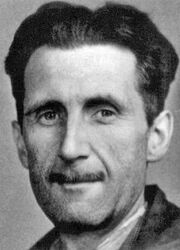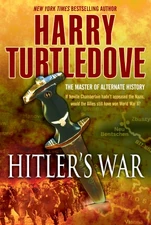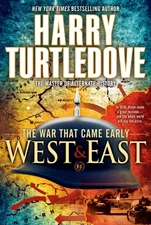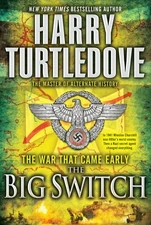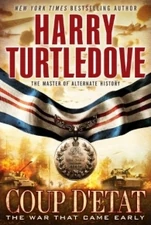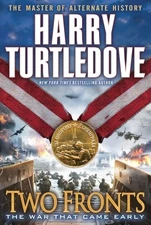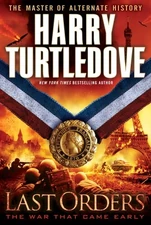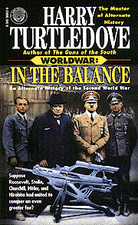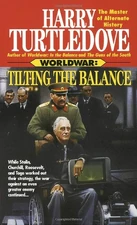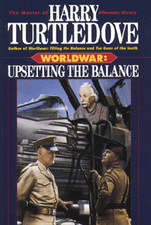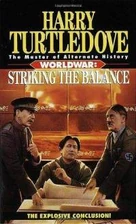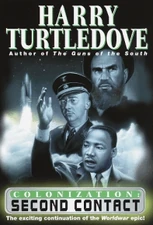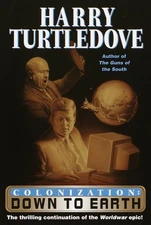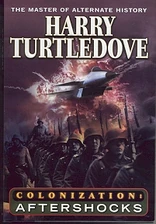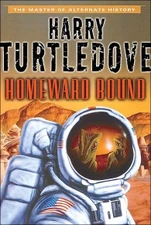Eric Arthur Blair (25 June 1903 - 21 January 1950), better known by the pen name George Orwell, was an English author and journalist. Noted as a novelist and critic as well as a political and cultural commentator, Orwell is among the most widely admired English language essayists of the 20th century. He is best known for two novels critical of totalitarianism in general, and Stalinism in particular: Animal Farm and Nineteen Eighty-Four. Both were written and published during the Cold War, towards the end of his life. Blair was a BBC radio broadcaster during the late 1930s and much of the 1940s; ironically, no recordings of his voice are known to have survived into the 21st century. From January until May 1937, Orwell served in the International Brigades of the Spanish Civil War. A sniper's wound to his throat rendered him unfit to continue his military service, and he returned to the United Kingdom in July. George Orwell in Worldwar[]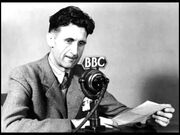 Blair had led an interesting life before arriving at that position, among other things, serving in the Spanish Civil War against fascism, but was sickened by the Communists' behavior, and left.[1] When World War II began, Blair took a job in the BBC's Indian section. He continued at this post when the Race invaded in 1942. It was here that Blair was introduced to Moishe Russie.[2] The astute medical student noted to Blair the symptoms of tuberculosis when Blair began to cough almost uncontrollably.[3]
Blair and Russie's path crossed several times in London, as Russie began broadcasting propaganda for Britain.[4] When the Race attempted an invasion of Britain, Blair armed himself and joined in the defence of London.[5] As part of the Indian section, in November 1943, he teamed up with an Indian princess on the air to report on the Race occupation of her homeland, and Mohandas Gandhi's response. Blair mused on the convenient alliance it was: he, the Socialist, teaming up with royalty. The princess was quick to remind Blair that they'd both wanted dominion status for India.[6] Later in life, Russie reflected on his meeting Blair and shared his sentiment that "the Nazis the Russians [were] a boot in the face of mankind forever." While Russie thought Blair was being gloomy at the time, in the 1960s, Russie reconsidered.[7] George Orwell in The War That Came Early[]
In early 1939 a tall, pale, skinny fellow with a dark mustache and hair who had to come from Ireland or England exchanged nods with Chaim Weinberg in Tortosa as the International Brigades were being pulled from the Ebro front to Madrid. Weinberg was surprised that such an obvious foreigner would prefer to hang with Catalan anarchist militias rather than with other Internationals.[8] Literary comment[]While this character isn't clearly identified, his basic description and Catalan connection match up with Orwell. His being in Spain in 1939 appears to be a butterfly effect of the primary Point of Divergence involving Marshal Sanjurjo's survival. George Orwell in "The Last Word"[]
An Englishman once declared that the Draka were "a boot in the face of mankind forever," or words to that effect. The Final War was the crowning fulfillment of that prophecy. Literary comment[]While the Englishman isn't named, there is very little doubt about Orwell's identity. See Also[]
References[]
|
||||||||||||||||||||||||||||||||||||||||||||||||||||||||||||||||||||||||||||||||||||||||||||||||||||||||||||||
Advertisement
9,507
pages
George Orwell
Advertisement
